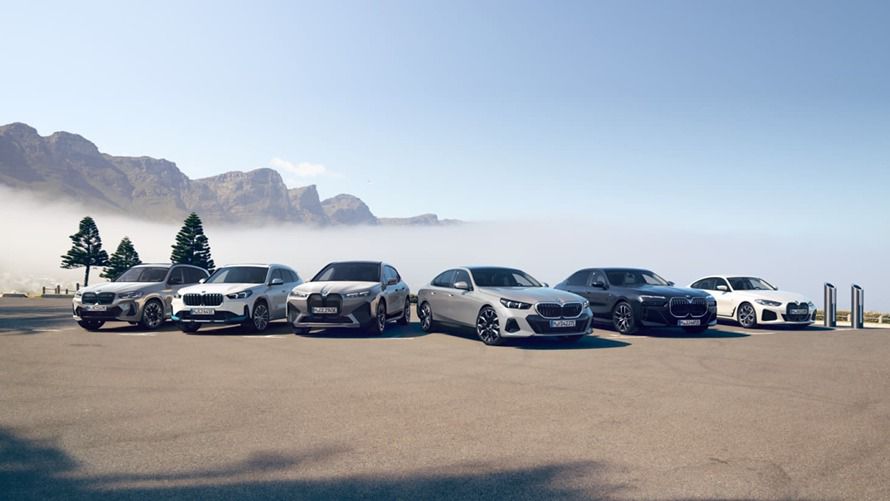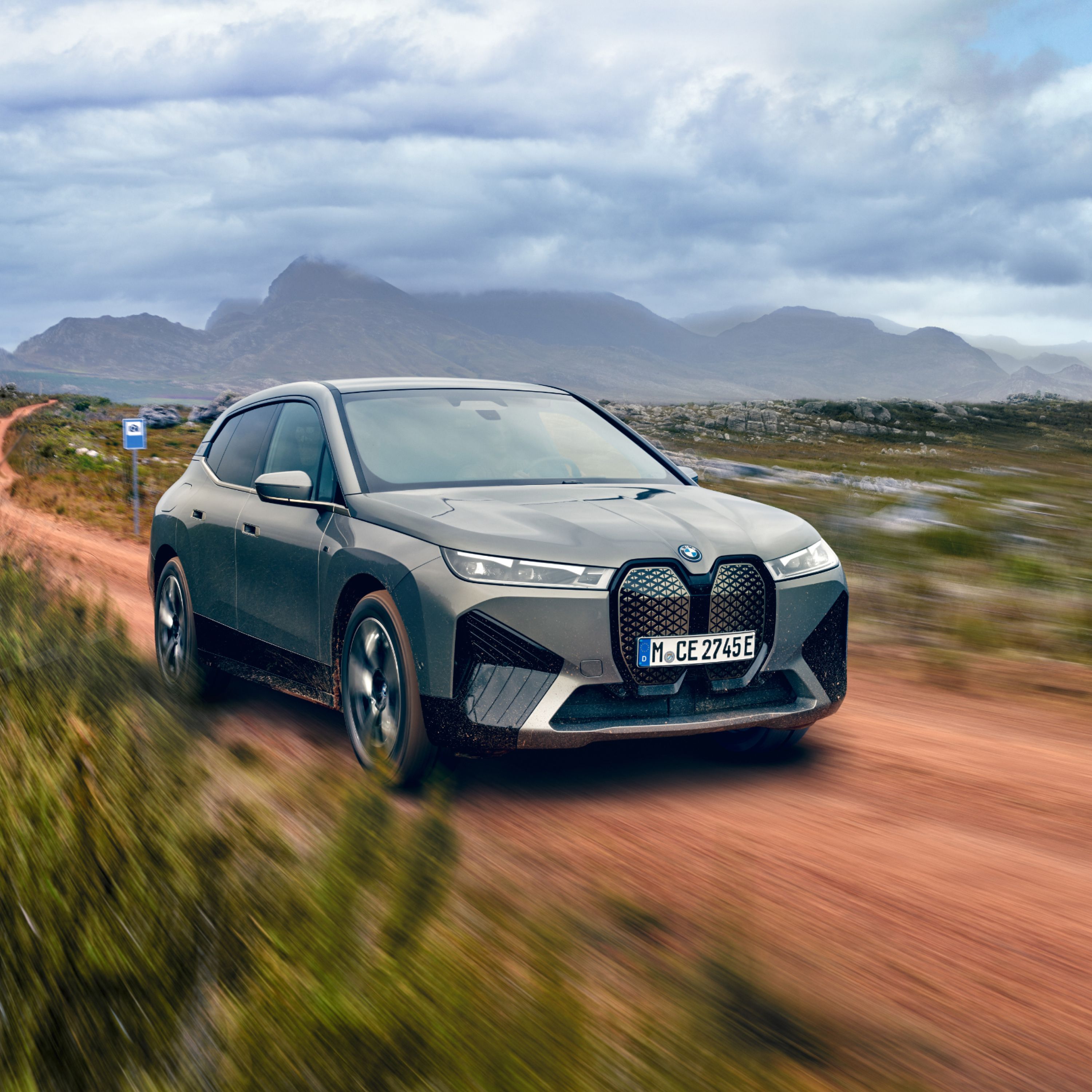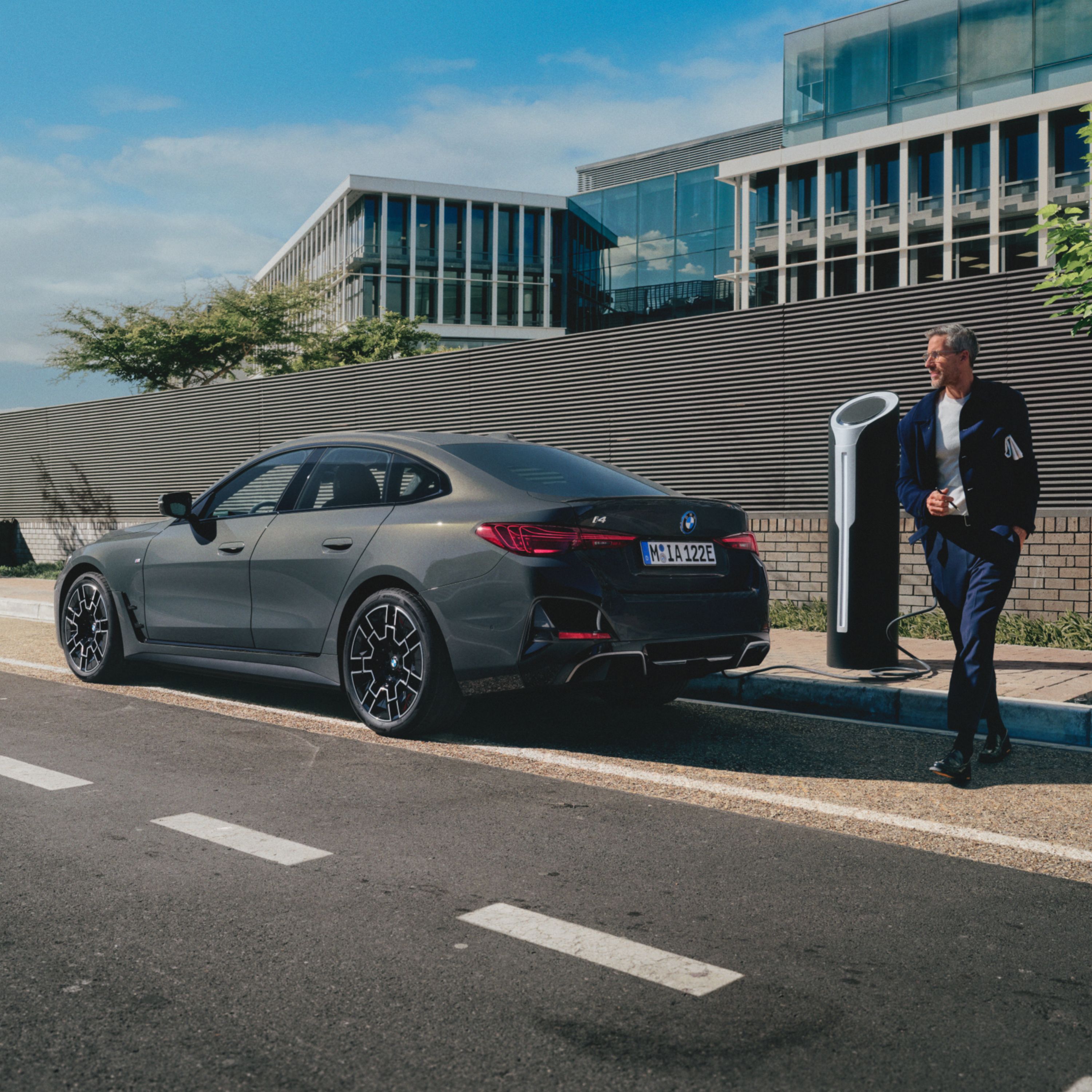BMW iX M60: Energy consumption, combined WLTP in kWh/100 km[1]: 24.7-22 ; Electric range, WLTP in km[2]: 566–499
When the price matches the performance. An electric car could cost less than you think and even save you money. Compared to traditional petrol and diesel-powered cars, electric cars have lower running costs, and lower service and maintenance costs. At the same time, you can charge them inexpensively with the electricity tariff that is right for you. In many countries, locally emission-free or lower-emission cars and charging solutions are supported by state subsidies and tax incentives. Free parking spaces with charging stations are now available in many towns and cities – yet another benefit.
ELECTRIC CAR PRICE COMPARISON.


BMW i4 eDrive40 Gran Coupé: Energy consumption, combined WLTP in kWh/100 km[1]: 18.6–15.4; Electric range, WLTP in km[2]: 590
BMW i7 xDrive60: Energy consumption, combined WLTP in kWh/100 km[1]: 19.6–19.2; Electric range, WLTP in km[2]: 589–602
BMW i4 M50 xDrive: Energy consumption, combined WLTP in kWh/100 km[1]: 22.5 - 18; Electric range, WLTP in km[2]: 415 - 520
BMW i5 M60 xDrive Sedan: Energy consumption, combined WLTP in kWh/100 km[1]: 20.5–18.2; Electric range, WLTP in km[2]: 457–516
{model.description}: Energy consumption, combined WLTP in kWh/100 km[1]: {techdata.electricConsumption}; Electric range, WLTP in km[2]: {techdata.electricRangeWltpCombined}
BMW iX2 eDrive20: Energy consumption, combined WLTP in kWh/100 km[1]: 16.9 - 15.3; Electric range, WLTP in km[2]: 439–478
{model.description}: Energy consumption, combined WLTP in kWh/100 km[1]: {techdata.electricConsumption}; Electric range, WLTP in km[2]: {techdata.electricRangeWltpCombined}
BMW iX1 eDrive20: Energy consumption, combined WLTP in kWh/100 km[1]: 17.2–15.4; Electric range, WLTP in km[2]: 430–474
BMW iX3: Energy consumption, combined WLTP in kWh/100 km[1]: 18.0-17.6; Electric range, WLTP in km[2]: 461-471
BMW iX M60: Energy consumption, combined WLTP in kWh/100 km[1]: 24.7-22 ; Electric range, WLTP in km[2]: 566–499
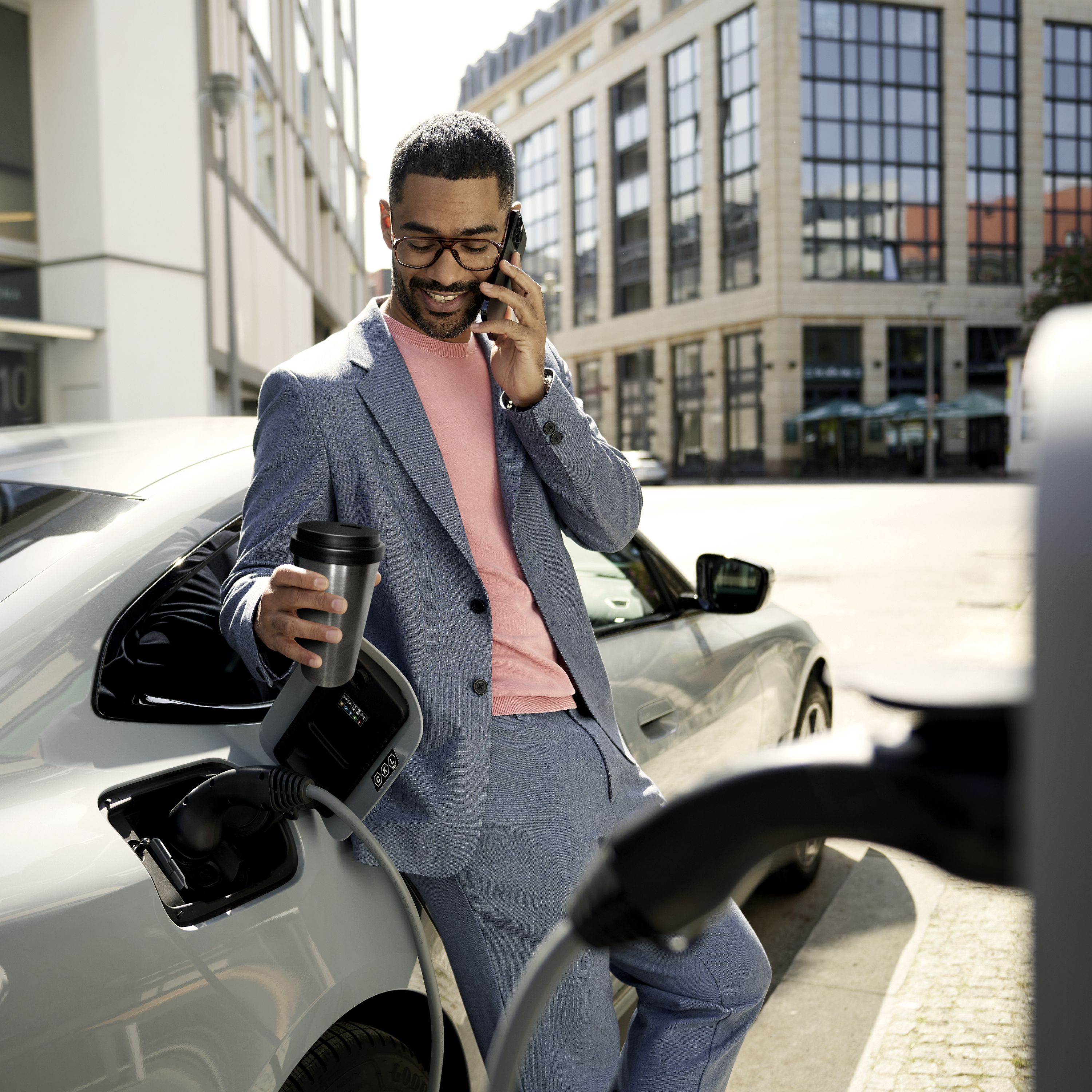
ELECTRIC CAR LEASING. DISCOVER OUR DEALS.
Find tailor-made deals and promotions with BMW Financial Services. With attractive leasing deals and terms for electric cars. Private or commercial leasing at affordable rates. Our one-stop shop handles everything at fixed rates. A comprehensive range of financial services plus insurance. Individually tailored to your situation and finances.

SUBSIDIES FOR THE PURCHASE OF AN ELECTRIC CAR.
Many countries offer subsidies, tax benefits, incentives, or credits for electric cars. Find out more about attractive promotions and deals.
ELECTRIC CAR MAINTENANCE COSTS.
You'll save on service and maintenance costs with an electric car. Unlike vehicles with a combustion engine, electric cars have fewer wearing parts. There is therefore no need to replace spark plugs, oil filters and cambelts. At the same time, you'll save on repair costs due to the fact that electric cars have no exhaust pipe or clutch. And there's no need to change the oil during an inspection. A service is around 30% cheaper than with a petrol or diesel vehicle, saving you time and money.

SERVICE AND MAINTENANCE FOR YOUR ELECTRIC CAR.
An electric car also needs to be checked regularly. Your BMW is in the best hands with BMW Service, saving you time and money. With professional support in every situation – whether you need maintenance or repair, or even preventative care with Proactive Care. Always to the most exacting quality standards using genuine BMW parts.
ALL ABOUT ELECTROMOBILITY.
FREQUENTLY ASKED QUESTIONS.
MORE INFORMATION.

TEST DRIVE THE BMW MODEL OF YOUR CHOICE.
Would you like to experience for yourself how your ideal electric model drives and feels? Simply arrange an online appointment for a test drive when it suits you. Your local BMW partner will contact you with all the information you need.

WOULD YOU LIKE A PERSONAL CONSULTATION?
Please contact your local BMW dealership with any questions or for more information or a quotation. Our professional BMW service personnel will be happy to advise you by phone or in person.

BMW CUSTOMER SUPPORT.
BMW Customer Support is on hand to help you with all BMW-related issues – so that you get answers to all your questions: whether you're an existing BMW driver or are planning to purchase a new BMW.
ELECTRIC CAR OFFERS
FIND YOUR BMW ELECTRIC CAR.

YOUR NEW BMW ELECTRIC CAR.
Find available BMW models and buy or lease your BMW directly online. Fully electric cars or plug-in-hybrids. For example, the BMW iX, de BMW i4 or the BMW i3. There are many offers to choose from.
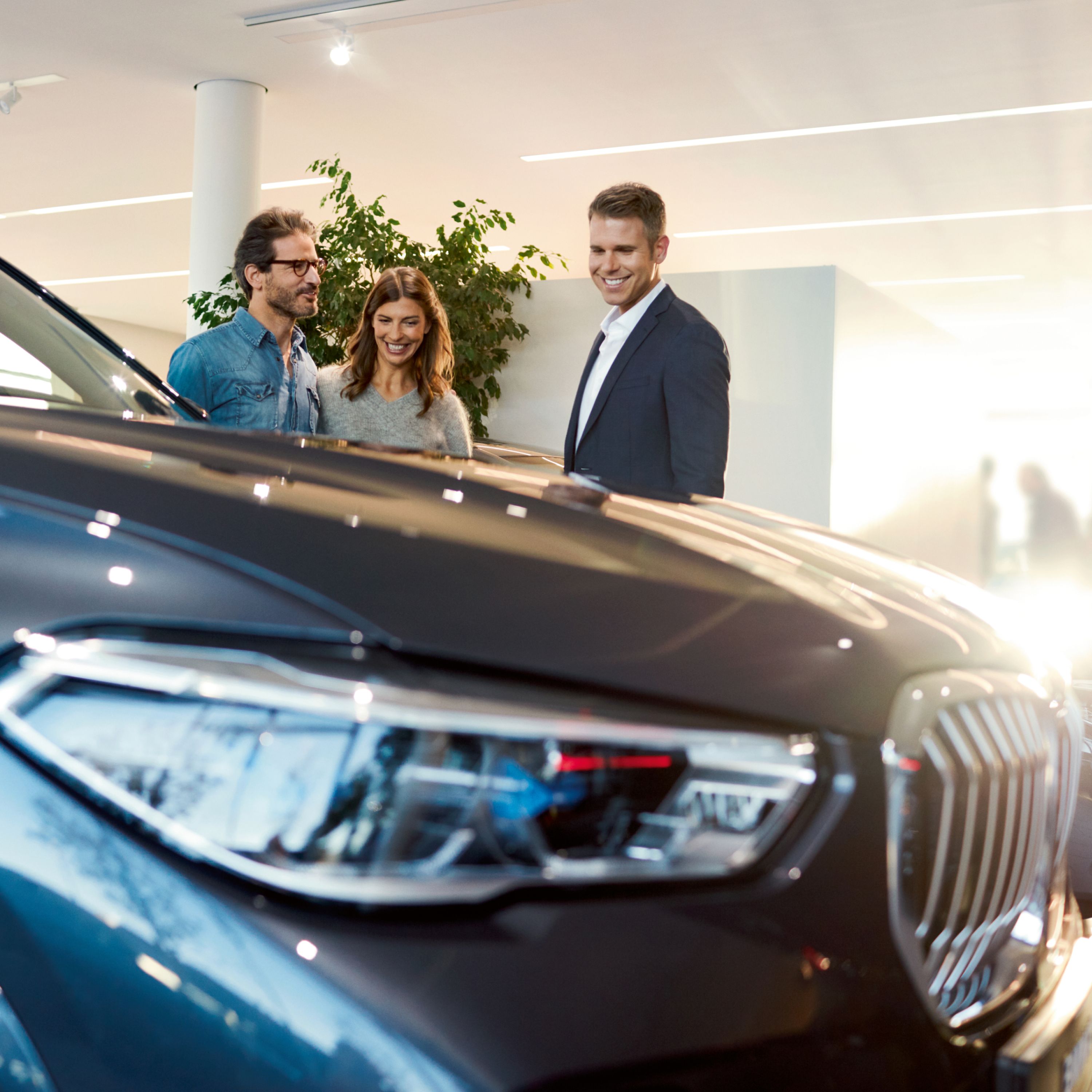
USED BMW ELECTRIC CARS.
Used BMW cars have no reason to hide. The same of course applies to electric cars. Find available used BMW electric cars, for sale or to lease.
Fuel consumption and CO2 emissions.
BMW i4 eDrive40 Gran Coupé: Energy consumption, combined WLTP in kWh/100 km[1]: 18.6–15.4; Electric range, WLTP in km[2]: 590
BMW i7 xDrive60: Energy consumption, combined WLTP in kWh/100 km[1]: 19.6–19.2; Electric range, WLTP in km[2]: 589–602
BMW i4 M50 xDrive: Energy consumption, combined WLTP in kWh/100 km[1]: 22.5 - 18; Electric range, WLTP in km[2]: 415 - 520
BMW i5 M60 xDrive Sedan: Energy consumption, combined WLTP in kWh/100 km[1]: 20.5–18.2; Electric range, WLTP in km[2]: 457–516
{model.description}: Energy consumption, combined WLTP in kWh/100 km[1]: {techdata.electricConsumption}; Electric range, WLTP in km[2]: {techdata.electricRangeWltpCombined}
BMW iX2 eDrive20: Energy consumption, combined WLTP in kWh/100 km[1]: 16.9 - 15.3; Electric range, WLTP in km[2]: 439–478
BMW iX1 eDrive20: Energy consumption, combined WLTP in kWh/100 km[1]: 17.2–15.4; Electric range, WLTP in km[2]: 430–474
BMW iX3: Energy consumption, combined WLTP in kWh/100 km[1]: 18.0-17.6; Electric range, WLTP in km[2]: 461-471
BMW iX M60: Energy consumption, combined WLTP in kWh/100 km[1]: 24.7-22 ; Electric range, WLTP in km[2]: 566–499
The values of fuel consumptions, CO2 emissions and energy consumptions shown were determined according to the European Regulation (EC) 715/2007 in the version applicable at the time of type approval. The figures refer to a vehicle with basic configuration in Germany and the range shown considers optional equipment and the different size of wheels and tires available on the selected model.
The CO2 efficiency specifications are determined according to Directive 1999/94/EC and the European Regulation in its current version applicable. The values shown are based on the fuel consumption, CO2 values and energy consumptions according to the NEDC cycle for the classification.
When charging times are shown they can be affected by a number of factors such as type of charger, voltage supplied to the charger/car and type of current (AC or DC) supplied to the charger/car. The car also plays a role in charging times as it can be set by the driver to accept various different amperage and should preconditioning be used to heat or cool the vehicle while charging this will also affect the charging time.
The basis for the calculation of the charging times for 100 km range is the electric consumption of the vehicle based on the use of a high-Powered Charging station (HPC) or charging type and current as indicted in the literature above. The testing procedure measures are based on a 23 degrees Celsius battery start and ambient temperature with certification values excluding additional auxiliary consuming devices and systems within the vehicle such as seat heating, displays, air conditioning.
Individual consumption (fuel economy) may differ due to driving profile, vehicle load profile, auxiliary consumer usage, temperature, and ambient conditions. Consumption is based on WLTP or NEDC (whichever is indicated) best case conditions and is independently tested for BMW Group. If you are comparing this range with other models or brands make sure they are stating the same WLTP or NEDC testing regime. These results can be used to compare vehicles on a close to “like for like” basis but are unlikely to be achieved in real world conditions for reasons including temperature variation, driving conditions and the use of the auxiliary systems referred to above.
Information provided and images displayed on this site include overseas models and may show some features not available in New Zealand. Please contact an authorised BMW dealer for specific information on vehicles and features available in New Zealand. Product changes may have been made since production of this content.
[1] Official data for fuel consumption, CO2 emissions, power consumption and electric range was determined in accordance with the prescribed measuring procedure and corresponds to European Regulation (EC) 715/2007 in the applicable version. For ranges, data determined as per WLTP takes into account any optional equipment (available on the German market in this case). For vehicles that have been newly type approved since 1 January 2021, only the official data according to WLTP exists. In addition, NEDC values are deleted from the certificates of conformity as of 1 January 2023 by EC regulation 2022/195. For more information about NEDC and WLTP measuring procedures visit www.bmw.com/wltp
Further information about fuel consumption and official model-specific CO2 emissions of new passenger cars can be found in the "Guideline for fuel consumption, CO2 emissions and electric power consumption for new passenger cars", available free of charge at all points of sale, at the Deutsche Automobil Treuhand GmbH (DAT), Hellmuth-Hirth-Str. 1, 73760 Ostfildern-Scharnhausen, Germany, and under https://www.dat.de/co2/.
[2] Range depends on various factors, in particular: individual driving style, route characteristics, outside temperature, heating/air conditioning, pre-conditioning.
[3] The charging performance depends on the state of charge, ambient temperature, individual driving profile and use of auxiliary consumers. The ranges shown are based on the WLTP best case. The charging times apply to ambient temperatures of 23 degrees Celsius after a preceding drive and may differ depending on the usage behaviour.
